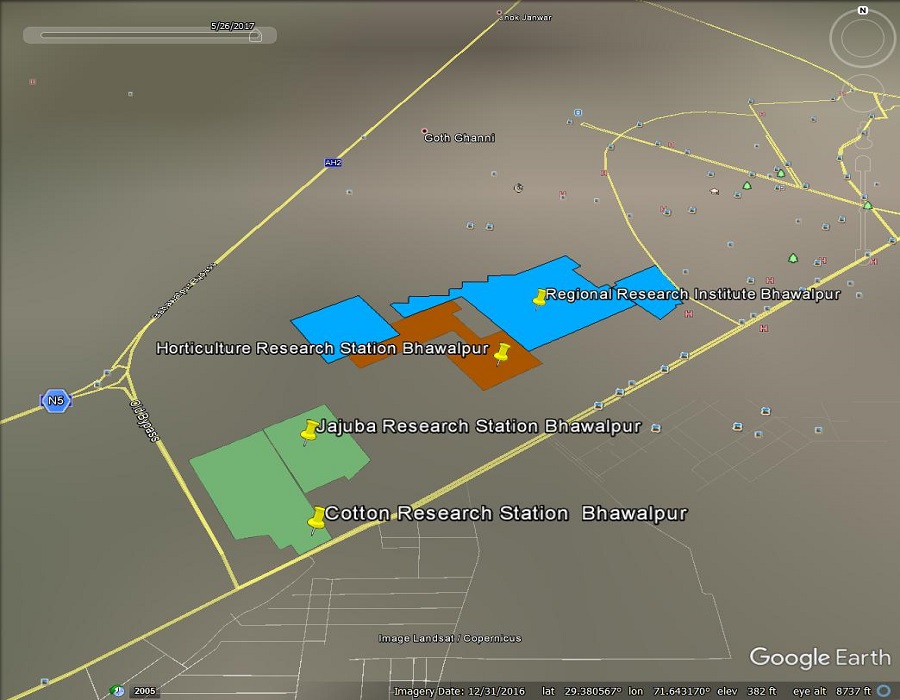This research station was established in 1988 as a JOJOBA Research Station Bahawalpur. Till 2015-16 it worked on JOJOBA but after that it stopped working on Jojoba on the order of Punjab Government. This research station is working under the Directorate of Oilseeds Research Institute, Faisalabad. This research station is assigned the research work on Oilseeds crops for evolution of varieties well adapted in the southern areas of the Punjab.
|
Traditional oilseeds crops: - Rapeseed –mustard, sesame and linseed |
Non-Traditional Oilseed Cops Sunflower, Safflower and Soybean |
Objectives
The objectives of Oilseeds Research Station, Bahawalpur are
- Collection, evaluation and maintenance of germplasm of oilseeds crops.
- Development of improved varieties of oilseeds crops.
- Development of canola type mustard varieties.
- Standardization of package of production technology for oilseeds crops.
- Dissemination of production technology to the farmers of oilseed crops to enhance yield.
- Micro seed yield trials of Oilseeds crops i.e. Brassica, Linseed, Sesame, Castor bean, Soybean and Sunflower.
- Seed production of oilseed crops.
Research Activities
Following are the research activities of the station:
1. Collection and maintenance of germplasm of Brassica juncea
300 entries have been collected so far from different sources and planted and properly maintained. High yielding 50 entries were selected for further studies.
2. Genetic improvement in Brassica juncea through hybridization
To create genetic variability hybridization process is carried out between the selected and high yielding of canola quality type. 8 crosses were attempted and filial generations of these crosses were properly studied.
3. Preliminary seed yield trial of brassica juncea
12 high yielding entries were selected from the existing gene pool of brassica juncea and included in preliminary seed yield trial.
4. Advanced seed yield trial of brassica juncea
10 high yielding promising lines were selected from the preliminary seed yield trial and these lines were further tested in this trial along with check (Super raya)
5. Advanced seed yield trial of brassica napus
11 high yielding promising lines of brassica napus were tested along with check(Rohi sarsoon). The promising lines OBN 120, OBN 109, OBN 105 gave the highest yield.
6. Collection and maintenance of germplasm of safflower
Total 500 entries have been collected so far from different sources and planted and properly maintained. High yielding 40 entries were selected for further studies.
7. Preliminary yield trials of safflower
24 promising lines were tested in order to estimate the yield performance of safflower out of which SAF-209 and SAF-222 gave the highest yield of 2850 kg/ha and 2535 kg/ha respectively followed by the entry Thori-78 that gave the yield of 2460 kg/ha.
8. Micro seed yield trial of safflower
In this trial most elite lines were tested for yield performance at different locations of Punjab i.e. Bahawalpur, Khanpur, Bahawalnagar, Khanewal, Bakkhar and Chakwal. The lines were tested for consecutive three years. The perusal of result comprising of three years revealed that SAF-65, SAF-45, SAFG-174 gave the highest yield.
Contact Us
Map

